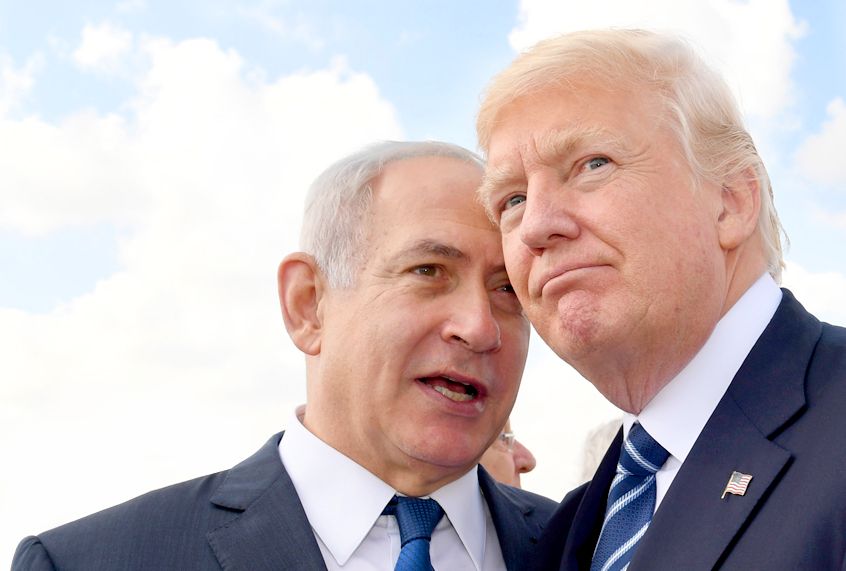Israeli Prime Minister Benjamin Netanyahu appears to be on the verge of clenching an historic fifth term in office.
With more than 97 percent of the vote counted, Netanyahu’s right-wing Likud party looks poised to win 35 seats to the Knesset, according to CNN. Meanwhile, the incumbent’s chief opponent, Benny Gantz’s centrist Blue and White party, also looks on the cusp of winning 35 seats.
While it may seem as though the two candidates are neck-and-neck, Israeli prime ministers are elected based on whether they can form governing coalitions in the 120-member Knesset. Because a simple majority is needed to attain power, and Netanyahu is expected to combine the seats won by the the two ultra-orthodox religious parties with those of other conservative parties, political experts believe he will be able to cobble together a coalition with 65 seats. Gantz’s coalition, by contrast, is expected to only pick up 55 seats.
Netanyahu has already claimed victory, telling cheering supporters Tuesday night that “the right-wing bloc led by the Likud won a clear victory. I thank the citizens of Israel for the trust. I will start forming a right-wing government with our natural partners as soon as tonight.”
This election cycle has been marked by its fair share of controversy. Netanyahu is immersed in a criminal investigation after Israeli Attorney General Avichai Mandelblit announced plans to indict the prime minister on charges of breach of trust, bribery and fraud. If officially reelected, the Israeli prime minister would begin his unprecedented fifth term under a cloud of scandal.
Additionally, Netanyahu courted more overtly racist elements of the Israeli far right as he eyed reelection. The prime minister recently agreed to bring two fringe right-wing parties, the anti-Arab Otzma Yehudit party and the ultra-nationalist Jewish Home party, into his governing coalition. That decision prompted a rare condemnation from AIPAC, America’s largest pro-Israel lobby, while the American Jewish Committee wrote that “the views of Otzma Yehudit are reprehensible. They do not reflect the core values that are the very foundation of the State of Israel. The party might conceivably gain enough votes to enter the next Knesset, and potentially even become part of the governing coalition.”
On the path to victory, Netanyahu leveraged the support of President Donald Trump. In an apparent attempt to capitalize on his high popularity in Israel, the president hosted Netanyahu at the White House a mere two weeks before Israeli voters headed to the ballot box. (Trump’s approval rating last year stood at 69 percent, a boost fueled at least in part by his decision to move America’s embassy from Tel Aviv to Jerusalem.) The prime minister even approved a billboard in Tel Aviv showing himself shaking hands with the president in order to tout their close relationship. Trump further aided Netanyahu politically by recognizing the contested Golan Heights as an Israeli territory and refusing to condemn Netanyahu’s pledge to annex Jewish settlements in the West Bank in the election’s home stretch.
Netanyahu also received a boost from Russian President Vladimir Putin, who one week before the election surprised Israelis by returning the remains of Zechariah Baumel, a staff sergeant in the Israeli Army whose remains had been missing for 37 years after he was killed during the Lebanon War. Russia claimed their military, along with Syria, had found Baumel’s body and decided to return it to the Israeli government.
In an unrelated development, there could be possible evidence of red flags in terms of the voting process itself. As Haaretz reported, “Turnout has been historically low in the Arab community, according to pollsters. Netanyahu’s Likud party provided activists with 1,200 hidden cameras ‘to monitor’ Arab polling stations — a move that prompted Israel’s Central Elections Committee to file a police complaint.”
The outlet also added, “The election committee said it made a mistake and accidentally entered voting eligibility data from 2015 to the website showing live election results. Earlier, it was reported that certain localities had a voter turnout higher than 100 percent. In the settlement of Brukhin, turnout appeared to be 167 percent, and in the Bedouin village of Bir Haj, turnout appeared to be 117 percent. The committee said the issue is being resolved.”

